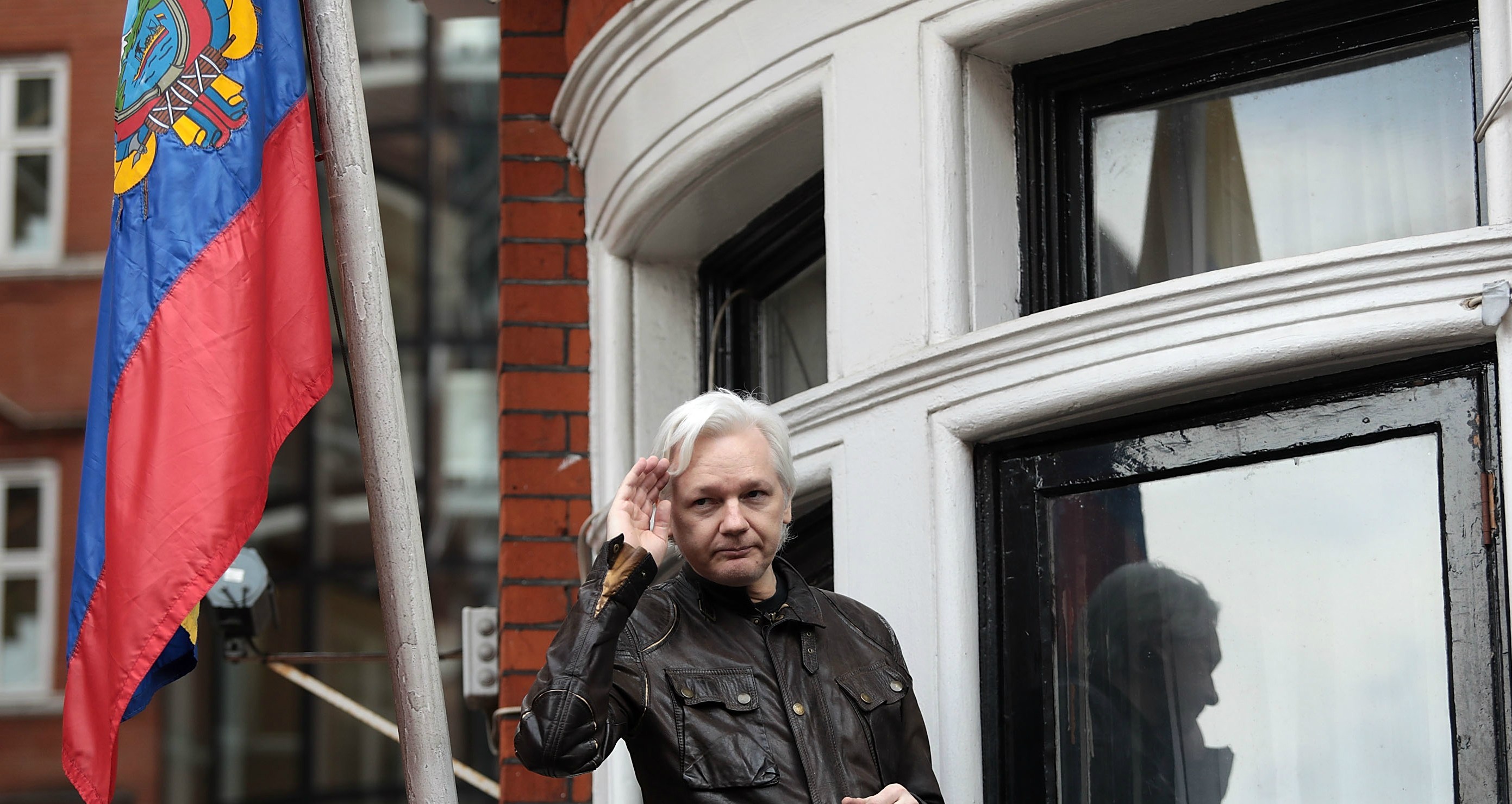Julian Assange loses fresh bid to overturn arrest warrant
Judge says WikiLeaks founder thinks he is ‘above the law’ and should turn himself into police

A free daily email with the biggest news stories of the day – and the best features from TheWeek.com
You are now subscribed
Your newsletter sign-up was successful
Julian Assange has lost his second court bid in a week to have his UK arrest warrant dropped, with a judge calling on the WikiLeaks founder to have the “courage” to surrender to police.
In a withering ruling, Justice Emma Arbuthnot, of Westminster Magistrates’ Court, said: “He appears to consider himself above the normal rules of law and wants justice only if it goes in his favour. As long as the court process is going his way, he is willing to be bailed conditionally but as soon as the Supreme Court rules against him, he no longer wants to participate on the court’s terms but on his terms.”
Assange has been holed up in the Ecuadorian embassy in London since 2012, initially because he was wanted for questioning in Sweden over a rape allegation - an accusation Assange denies.
The Week
Escape your echo chamber. Get the facts behind the news, plus analysis from multiple perspectives.

Sign up for The Week's Free Newsletters
From our morning news briefing to a weekly Good News Newsletter, get the best of The Week delivered directly to your inbox.
From our morning news briefing to a weekly Good News Newsletter, get the best of The Week delivered directly to your inbox.
Sweden abandoned its case last year, but Assange has remained in self-imposed exile in the embassy fearing that, if he leaves, he could be arrested and eventually extradited to the US and possibly Guantanamo Bay. The Australian-Ecuadorian national is linked to the leak of US military materials including a video showing unarmed Iraqis being gunned down by an American helicopters.
Arbuthnot said she did not find Assange’s fear that he could be extradited to the US to be “reasonable”, the BBC reports.
UK authorities maintain that Assange jumped bail in 2012 and that this charge remains valid regardless of Sweden dropping its investigation.
Assange’s legal team had tried to overturn the arrest warrant arguing that it was not proportional or in the public interest. His lawyers noted that Assange has cooperated with Sweden, has spent almost six years in the embassy, and that the UN ruled he has been arbitrarily detained, The Guardian says.
A free daily email with the biggest news stories of the day – and the best features from TheWeek.com
Arbuthnot knocked down those arguments, saying that Assange can leave the embassy “whenever he likes”.
-
 Crisis in Cuba: a ‘golden opportunity’ for Washington?
Crisis in Cuba: a ‘golden opportunity’ for Washington?Talking Point The Trump administration is applying the pressure, and with Latin America swinging to the right, Havana is becoming more ‘politically isolated’
-
 5 thoroughly redacted cartoons about Pam Bondi protecting predators
5 thoroughly redacted cartoons about Pam Bondi protecting predatorsCartoons Artists take on the real victim, types of protection, and more
-
 Palestine Action and the trouble with defining terrorism
Palestine Action and the trouble with defining terrorismIn the Spotlight The issues with proscribing the group ‘became apparent as soon as the police began putting it into practice’
-
 Epstein files topple law CEO, roil UK government
Epstein files topple law CEO, roil UK governmentSpeed Read Peter Mandelson, Britain’s former ambassador to the US, is caught up in the scandal
-
 Iran and US prepare to meet after skirmishes
Iran and US prepare to meet after skirmishesSpeed Read The incident comes amid heightened tensions in the Middle East
-
 Israel retrieves final hostage’s body from Gaza
Israel retrieves final hostage’s body from GazaSpeed Read The 24-year-old police officer was killed during the initial Hamas attack
-
 China’s Xi targets top general in growing purge
China’s Xi targets top general in growing purgeSpeed Read Zhang Youxia is being investigated over ‘grave violations’ of the law
-
 Panama and Canada are negotiating over a crucial copper mine
Panama and Canada are negotiating over a crucial copper mineIn the Spotlight Panama is set to make a final decision on the mine this summer
-
 Why Greenland’s natural resources are nearly impossible to mine
Why Greenland’s natural resources are nearly impossible to mineThe Explainer The country’s natural landscape makes the task extremely difficult
-
 Iran cuts internet as protests escalate
Iran cuts internet as protests escalateSpeed Reada Government buildings across the country have been set on fire
-
 US nabs ‘shadow’ tanker claimed by Russia
US nabs ‘shadow’ tanker claimed by RussiaSpeed Read The ship was one of two vessels seized by the US military